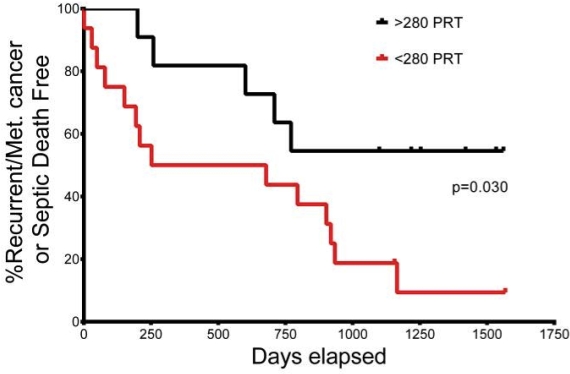Allo-Stimulated Interferon-γ Release and Natural Killer Cell Function Defines and Risk Stratifies Cancer Development in Kidney Transplant Recipients Who Have Cancer Post-transplantation
1The Centre for Clinical and Experimental Transplantation (CCET), Central Northern Adelaide Renal and Transplantation Services (CNARTS), Adelaide, South Australia, Australia
2Medicine, The University of Adelaide, Adelaide, South Australia, Australia
3Icahn School of Medicine, The Recanati-Miller Transplant Institute, New York City, NY.
Meeting: 2015 American Transplant Congress
Abstract number: C279
Keywords: Kidney transplantation, Malignancy, Natural killer cells, T cell activation
Session Information
Session Name: Poster Session C: Translational Biomarkers and Immune Monitoring
Session Type: Poster Session
Date: Monday, May 4, 2015
Session Time: 5:30pm-6:30pm
 Presentation Time: 5:30pm-6:30pm
Presentation Time: 5:30pm-6:30pm
Location: Exhibit Hall E
Reducing immunosuppression is efficacious in primary prevention of cancer in Kidney Transplant Recipients (KTR) but can precipitate graft rejection. Conventional immunosuppressive drug monitoring fails to determine risk of cancer development or potential rejection risk upon drug reduction.
Natural Killer cell function and quantification of Interferon-γ producing allo-reactive memory T cells may have the potential to do so. Our primary investigation found that both peripheral blood NK cell function via Lactate Dehydrogenase release and IFN-γ quantification via Panel of Reactive T cell (PRT) stimulated ELISPOT were diminished in KTR with current malignancy compared to KTR with no history of malignancy, within two separate cohorts of KTR (n=80). Upon prospective follow-up, those with a PRT <280 spots/300,000 PBMC had a HR = 2.9 [1.14-6.73] (p=0.03) of developing an immunosuppression related incident (cancer recurrence/septic death) 
KTR with NK cytolytic potential <7% had a HR = 2.8 [0.73-7.8] (p=0.160) of developing a new cancer. Additionally, all those with a PRT value <100 spots/300,000 PBMC (n=8) died within 3 years of testing and had a HR =3.0 [1.24-6.80] (p<0.05) of death due to immunosuppressive drug complications (metastatic cancer or septic death) compared to those KTR who had PRT>100 spots/300,000 PBMC.
These two assays provide biological outputs that prospectively correspond to clinical outcomes and could benefit current clinical practice of drug alterations post-cancer diagnosis.
To cite this abstract in AMA style:
Hope C, Fuss A, Hanf W, Coates P, Heeger P, Carroll R. Allo-Stimulated Interferon-γ Release and Natural Killer Cell Function Defines and Risk Stratifies Cancer Development in Kidney Transplant Recipients Who Have Cancer Post-transplantation [abstract]. Am J Transplant. 2015; 15 (suppl 3). https://atcmeetingabstracts.com/abstract/allo-stimulated-interferon-release-and-natural-killer-cell-function-defines-and-risk-stratifies-cancer-development-in-kidney-transplant-recipients-who-have-cancer-post-transplantation/. Accessed March 4, 2026.« Back to 2015 American Transplant Congress
